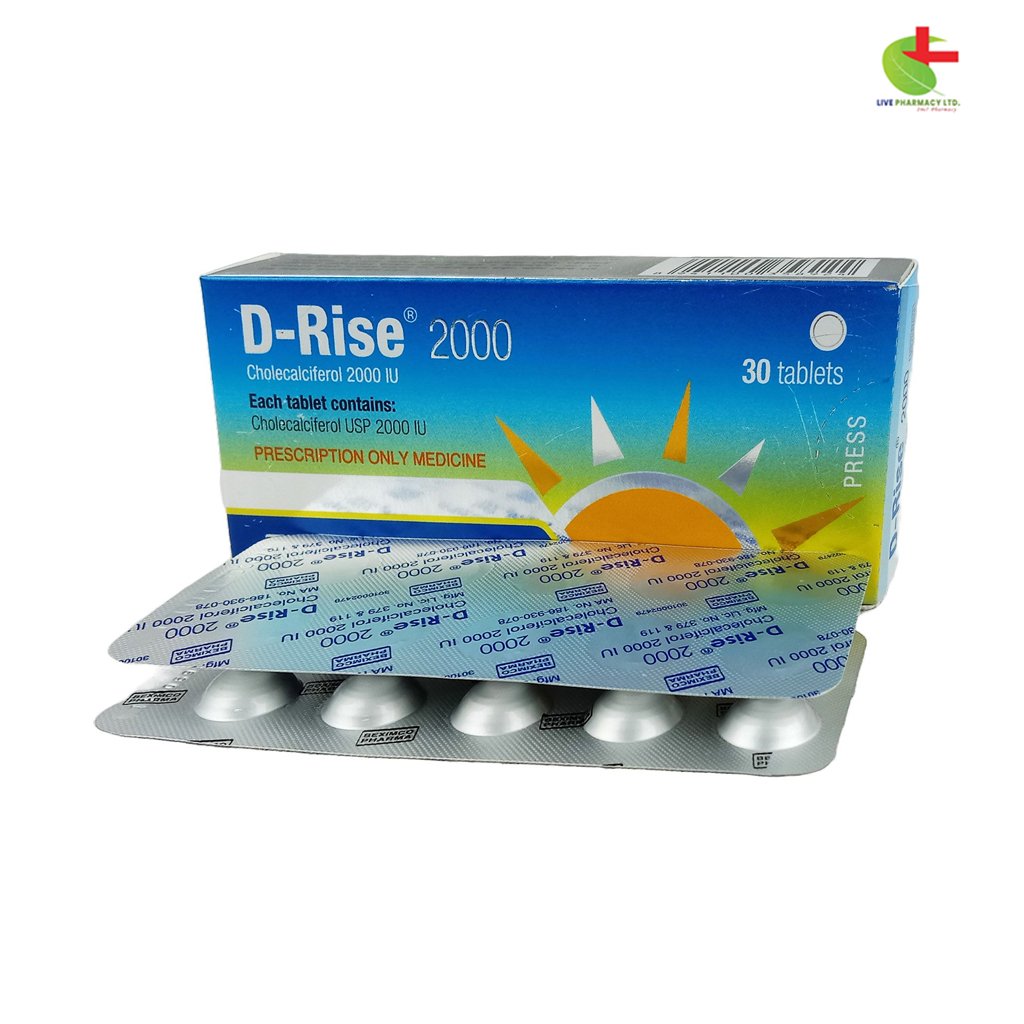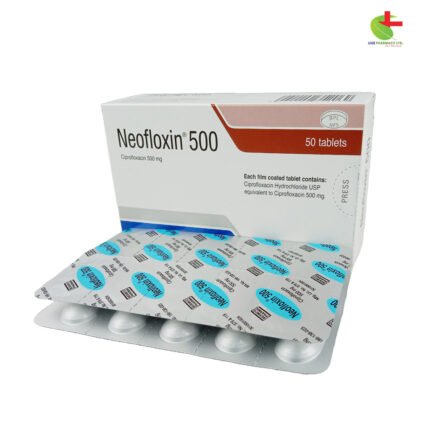D-Rise 2000 IU
200.00৳ Strip
- Vitamin D3 supplements designed to boost your health.
- Combat deficiencies caused by limited sunlight exposure or inadequate diet.
- Support strong bones, teeth, and immunity with our high-quality formulations.
- Choose from capsules, tablets, or syrups tailored for all ages for optimal absorption.
- Effective Vitamin D3 supplementation and maintain your wellness effortlessly.
 Brand
Brand
|
Beximco Pharmaceuticals Ltd |
|---|---|
 Generics
Generics
|
Cholecalciferol [Vitamin D3] |
 Type
Type
|
Capsule |
Indications
Vitamin D3 deficiency may arise in individuals with limited sunlight exposure or those with diets lacking in vitamin D3. Vitamin D3 is crucial for optimal calcium and phosphate absorption, essential for maintaining healthy bones and teeth, and preventing conditions like rickets, osteomalacia, and osteoporosis. It also plays a vital role in preventing pre-eclampsia during pregnancy and supports infant growth. Additionally, Vitamin D3 supports immune function.
Pharmacology
Calcitriol, the active form of Vitamin D3, functions by binding to Vitamin D receptors (VDRs) found throughout the body’s tissues. Vitamin D3, being fat-soluble, has a half-life of approximately 50 days. It is absorbed in the small intestine, transported to the liver where it is converted into 25-hydroxy Vitamin D3 (Calcidiol), and further metabolized in the kidneys to 1,25-dihydroxy Vitamin D3 (Calcitriol). This metabolite enhances calcium absorption. Any unmetabolized Vitamin D3 is stored in fat and muscle tissues and is eliminated via feces and urine.
Dosage & Administration
For capsules:
- Adults: Treatment of Vitamin D3 deficiency involves 40,000 IU once weekly for 7 weeks, followed by maintenance therapy of 1400-2000 IU/day. Periodic measurement of 25-hydroxyvitamin D levels is recommended.
- Prevention of Vitamin D3 deficiency: 20,000 IU every 4 weeks, with higher doses in specific cases.
- Addition to osteoporosis therapy: 20,000 IU once a month.
- Children (12-18 years): Treatment and prevention dosages differ based on age and deficiency severity.
- Tablets and syrups have specific dosing instructions tailored for different age groups and conditions.
Interaction
Several medications can lead to Vitamin D3 deficiencies due to their impact on absorption and metabolism. These include antacids containing magnesium, digoxin, certain diuretics, and others. Corticosteroids like prednisolone increase the body’s Vitamin D3 requirements.
Contraindications
Vitamin D3 should not be used in conditions associated with high blood calcium levels or in cases of hypersensitivity to Vitamin D3 or its components. It is also contraindicated in cases of Vitamin D3 toxicity.
Side Effects
Potential side effects of Vitamin D3 supplementation include gastrointestinal symptoms, such as nausea and diarrhea, along with other rare symptoms like lassitude and headache. Monitoring of calcium and phosphate levels in plasma and urine is recommended.
Pregnancy & Lactation
Vitamin D3 use during pregnancy is generally safe within recommended doses. Higher doses may be necessary in cases of deficiency. Vitamin D3 and its metabolites are present in breast milk, and caution should be exercised when supplementing breastfeeding mothers and their infants.
Precautions & Warnings
Monitoring of plasma calcium levels is advised for patients receiving high doses of Vitamin D3, especially those with renal impairment or during pregnancy and lactation. Consultation with a healthcare provider is recommended before starting supplementation in individuals with specific medical conditions or those taking certain medications.
Use in Special Populations
The safety and effectiveness of Vitamin D3 in children under 12 years old have not been fully established.
Overdose Effects
Excessive intake of Vitamin D3 can lead to hypervitaminosis D.
Storage Conditions
Store below 30ºC, protected from light and moisture, and out of reach of children.













Reviews
There are no reviews yet.